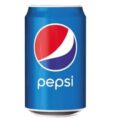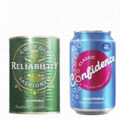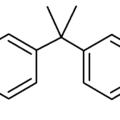The French Competition Authority (AMF) has fined several companies and organizations in the canned food market, including Unilever and Bonduelle, €19,553,400 for limiting competition in relation to the use of bisphenol A in their packaging. This chemical compound has been accused of acting as an endocrine disruptor in food.
Among the individuals and organizations that were sanctioned were three groups dedicated to the canning industry, such as FIAC, ADEPALE and ANIA, as well as an association of can manufacturers known as SNFBM.
In 2012, a law determined that eleven companies, belonging to specific groups, had a deadline until January 2015 to stop including bisphenol A in food packaging. This decision was made due to the potential health risk of this chemical.
A group of companies, including Andros, Bonduelle, Charles and Alice, Cofigeo, Conserves France, D’Aucy, General Mills and Unilever, together with distributors Ardagh, Crown and Massilly, are part of the group that produces and distributes cans in this industry.
Among the major companies are brands such as Cirio, Barbier Dauphin, Valfrutta, Rolli and Dea from Conserves France; Géant Vert, Häagen-Dazs, Nature Valley and Old El Paso from General Mills; and Amora, Ben & Jerry’s, Carte D’Or, Cornetto, Knorr, Magnum, Maille, Maizena and Miko from Unilever.
According to the Competition Authority, a violation was detected that occurred steadily for almost five years, exactly from October 2010 to July 2015. This failure was considered to be unique, complicated and continuous in that period.
Due to potential legal problems, companies have made a decision to prohibit manufacturers from publicly announcing that their products do not contain bisphenol A before the ban on this substance comes into force. This measure applies to those containers that have already stopped using this substance in their production.
The main objective was to avoid competition based on health-related arguments so as not to attract consumers and not to harm those who were still using bisphenol A packaging until its use was banned by law.
An agreement was also reached to convince employers to continue using packaging containing bisphenol A to the end, despite pressure from distribution groups to change this as soon as possible.
The AMF (Association of Medicines and Pharmacies) considered the actions taken as very serious, since they limited the choice of bisphenol A-free products for consumers, despite the fact that there were already bisphenol A-free options on the market. In addition, it is pointed out that at that time the harm that bisphenol A could cause to health was known.
One of the most common applications of bisphenol A is in the production of plastics, such as polycarbonate and resins, which are used in products such as adhesives, cables, sporting goods and household appliances. This compound is also widely used in a variety of manufactured products.
According to a 2015 report by the French Food Safety Agency, if a person comes into contact with this product they may experience problems conceiving, changes in metabolism, thyroid gland dysfunctions and hormone-related cancers such as breast or prostate cancer.













